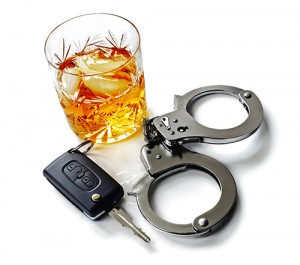A blood sample is often a key piece of evidence in a DUI case. While you can refuse to supply a blood sample after an arrest, you risk a one year license suspension simply based on your refusal. The license suspension is a civil sanction carried out by the Pennsylvania Department of Transportation (PENDOT) and therefore outside the scope of a criminal prosecution. Therefore, the Pennsylvania District Attorney could withdraw charges against you and still suspend your license simply because you refused to submit to a blood test. Therefore, I never recommend refusing a blood test under any circumstance since it is better to have your attorney dispute the admissibility of the blood test with pretrial motions and arguments at trial. This article, however, focuses on the use of blood after a certain period of time.
The Pennsylvania DUI statute section 3802(a) (1) does permit the Court to convict someone based on general impairment without the presentation of blood evidence but if the prosecution is pursuing a case under general impairment it forces the prosecution to rely on the testimony of a law enforcement officer and his subjective observations at the time of the alleged incident. Subjective observations, unlike objective blood evidence, are open to interpretation since there are several reasons to explain the unusual movements of an automobile or a person’s demeanor following a traffic stop on a suspicion of DUI.
The presentation of blood evidence at a DUI trial requires the prosecution to present testimony regarding the analysis of whole Blood Alcohol Content (BAC). It is important to understand that to calculate whole BAC, the prosecution must present evidence which mathematically converts blood serum to whole blood BAC utilizing a predetermined conversion factor. In other words, the officer must get your blood drawn and have your BAC tested within two hours after you last drove. If the arresting officer does not obtain your BAC within two hours, the prosecution must show your BAC using a Breathalyzer or the presence of another prohibited substance outside the two hour limit. Next, the prosecution has to show good cause why a blood test could not be obtained within two hours. Finally, it has to prove that you did not ingest any alcohol or drugs between the time of arrest and the time the sample was obtained.
This makes the case much harder for the prosecution but even if the judge allows the prosecutor to go forward, you must fight the good cause showing why the officers could not take your blood test within two hours. If the prosecution shows that the delay was your fault, the judge will rule against you.
It is important to remember, however, that in many DUI cases a person’s BAC level is just above the percentage cutoff and so a successful defense argument could lead to a full acquittal or, in the alternative, a conviction for a lesser offense under the statute allowing a person to avoid jail time and a license suspension in some cases. If you are charged with a DUI contact Gregory J. Spadea at 610-521-0604 of Spadea & Associates, LLC in Folsom, Pennsylvania.








